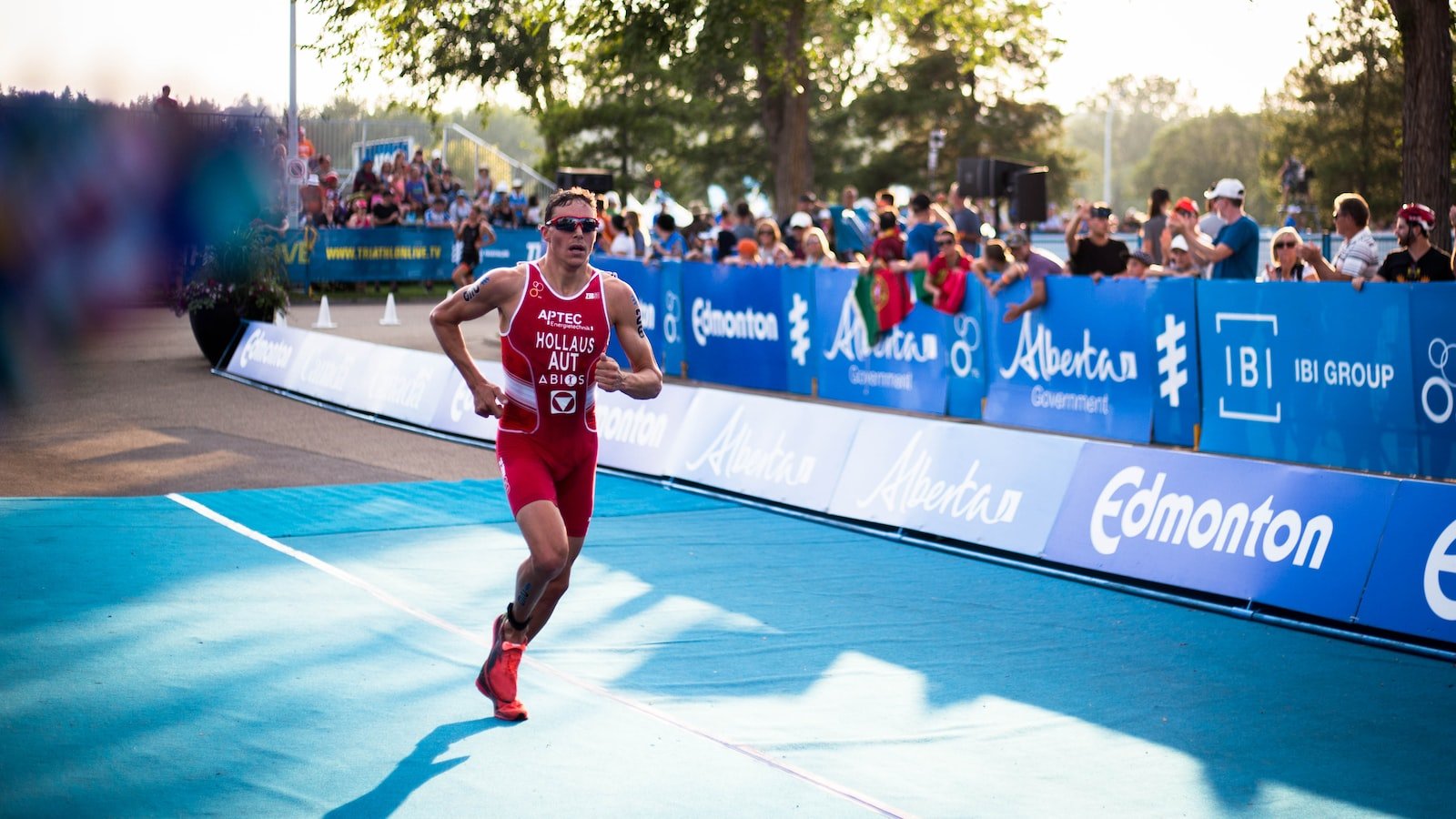With delicate precision, the picker slides the tension wrench into the keyway, gently easing it into place. The quiet hum of anticipation fills the air as the lock whisperer delicately manipulates the slender picks, their movements guided by an uncanny intuition. To the untrained eye, it may seem like an inconspicuous hobby, or perhaps an unconventional skill. Little do they know, within the labyrinth of locksport resides a fascinating realm where psychology and strategy intertwine, revealing the secrets of what it takes to emerge victorious in the captivating world of a lockpicker. Delve deep into the mesmerizing psychology of winning in locksport, as we unravel the hidden intricacies that lie beneath the surface of these enigmatic puzzles, beckoning those bold enough to embark on this captivating journey of the mind.
Table of Contents
- Understanding Motivation in Locksport
- Developing Mental Resilience and Patience in Lockpicking
- Harnessing Psychological Strategies for Success in Competitive Locksport
- Building Confidence and Self-Efficacy in Locksport Competitions
- Effective Visualization Techniques for Improving Performance in Locksport
- Q&A
- In Summary

Understanding Motivation in Locksport
Locksport, the practice of picking locks as a hobby or sport, has gained immense popularity over the years. In order to truly understand the motivation behind this intriguing hobby, it is essential to explore the various factors that drive individuals to engage in such a unique and challenging activity.
One of the key motivations in locksport is the sheer fascination with the intricate mechanisms of locks and the satisfaction derived from mastering them. The sense of achievement that comes from successfully picking a lock is unmatched, and it fuels a continuous desire for improvement and learning. Furthermore, locksport enthusiasts are often drawn to the intellectual and problem-solving aspects of the activity, as it requires a deep understanding of the inner workings of locks and the ability to think critically and strategically.
In addition to the intrinsic enjoyment and intellectual stimulation, locksport offers a dynamic and supportive community that acts as a major motivator for participants. The bonds formed within the locksport community are invaluable, offering a space for knowledge-sharing, collaboration, and friendly competition. Whether it’s attending meetups, participating in tournaments, or engaging in online forums, locksport enthusiasts thrive on the sense of belonging and camaraderie that this unique community provides.
Ultimately, understanding the motivation behind locksport is as diverse as the individuals who partake in it. From the thrill of solving a challenging puzzle to the sense of belonging within a welcoming community, locksport offers a multifaceted experience that is both intellectually stimulating and deeply satisfying. So, if you find yourself intrigued by the allure of locksport, grab your pick and tension wrench, and embark on a journey filled with endless fascination and personal growth.
Developing Mental Resilience and Patience in Lockpicking
In the world of lockpicking, mental resilience and patience are key to success. This unique skill requires individuals to not only possess technical knowledge and dexterity, but also the ability to navigate challenges and setbacks.
One way to develop mental resilience in lockpicking is to embrace the learning process. It is important to understand that failure is inherent in this craft, and every lock that remains unpicked is an opportunity to learn and improve. Embracing this mindset allows lockpickers to approach each challenge with enthusiasm and curiosity, rather than frustration and defeat.
Alongside mental resilience, developing patience in lockpicking is equally crucial. Patience is the virtue that separates amateurs from experts in this field. It is essential to recognize that lockpicking often requires delicate movements, trial and error, and a deep level of focus and concentration. By cultivating a patient mindset, lockpickers can effectively handle the intricate process of aligning pins, finding the right tension, and manipulating the lock mechanism to achieve success.
- Embrace failure as a learning opportunity.
- Approach each challenge with enthusiasm and curiosity.
- Cultivate a patient mindset to handle delicate movements and trial and error.
Mastering the art of lockpicking not only requires technical skills but also mental fortitude. By developing mental resilience and patience, lockpickers can overcome obstacles and unlock new levels of expertise in this intriguing craft.

Harnessing Psychological Strategies for Success in Competitive Locksport
When it comes to competitive locksport, honing your technical skills is crucial, but equally important is understanding the psychological aspects that can give you an edge over your opponents. Here are a few psychological strategies to help you maximize your success in the thrilling world of competitive locksport:
- Visualize Success: Visualization is a powerful tool that can enhance your performance. Before tackling a challenging lock, close your eyes and vividly imagine yourself smoothly manipulating the tumblers until the lock finally clicks open. By repeatedly visualizing success, you are preparing your mind and body for the task at hand.
- Develop Mental Resilience: The high-pressure environment of competitive locksport can sometimes lead to frustration or self-doubt. Building mental resilience is key to overcoming these obstacles. Practice mindfulness techniques to stay focused and learn from any mistakes or setbacks. Remember, perseverance and a positive mindset will carry you through even the toughest of challenges.
- Study Your Opponents: Just like in any competitive pursuit, understanding your rivals is crucial. Observe their techniques, strategies, and patterns. Analyze their strengths and weaknesses. By gaining insight into their approach, you can tailor your own strategies to exploit any vulnerabilities and stay one step ahead.
By combining technical prowess with psychological strategies, you will be well-equipped for success in competitive locksport. So, step up to the challenge, trust in your abilities, and unlock your full potential!

Building Confidence and Self-Efficacy in Locksport Competitions
Locksport competitions can be an excellent way to build confidence and self-efficacy in a unique and thrilling setting. Whether you’re a beginner or a seasoned competitor, participating in these events can provide a platform for personal growth and skill development.
One of the key benefits of engaging in locksport competitions is the opportunity to challenge yourself and push your boundaries. As you tackle complex locks and puzzles under time pressure, you’ll gradually build confidence in your abilities to problem-solve and think critically. This newfound self-assurance will undoubtedly spill over into other aspects of your life, helping you overcome obstacles and approach challenges with a positive mindset.
Moreover, participating in locksport competitions allows you to meet like-minded individuals who share your passion for locks and security. This networking aspect can provide a sense of camaraderie and support, strengthening your belief in your own capabilities. Interacting with fellow competitors, exchanging ideas, and learning from each other’s experiences can foster an environment of continuous learning and improvement.
To make the most of your locksport competition journey, consider implementing a few strategies:
- Practice regularly: Dedicate time to honing your lockpicking skills to improve your chances of success.
- Set achievable goals: Break down your long-term objectives into smaller, manageable milestones to maintain motivation and track your progress.
- Embrace failure: Mistakes and setbacks are valuable opportunities for learning and growth. Don’t be discouraged if you encounter difficulties; instead, learn from them and keep pushing forward.
By following these guidelines, you’ll be well on your way to building confidence, enhancing your self-efficacy, and flourishing in the exciting world of locksport competitions.
Effective Visualization Techniques for Improving Performance in Locksport
Locksport, the art of picking locks as a hobby, requires a combination of skill, focus, and precision. As any seasoned locksporter will attest, honing visualization techniques can greatly enhance overall performance. Here are some effective methods to help you improve your lockpicking skills:
- Mental Imagery: Visualize the internal workings of a lock, picturing each pin shifting and aligning as you pick it. This technique enhances muscle memory and helps develop a better understanding of the lock’s mechanics.
- Color and Shape Associations: Assigning specific colors or shapes to different components of a lock can assist in memorization and quick identification during lock manipulation. For example, you might link silver with driver pins and gold with key pins, allowing your mind to easily differentiate between them.
- Guided Visualization: Create a mental scenario where you are successfully picking a lock. Imagine the feeling of the tension wrench, the sound of pins clicking into place, and the rush of satisfaction as the lock finally yields. This visualization exercise can build confidence and replicate the physical sensations associated with picking a lock, improving your technique.
Remember, effective visualization techniques require practice and patience. Embrace these methods to unlock the full potential of your lockpicking skills and elevate your performance in the world of locksport.
Q&A
Q: What is locksport and how does it relate to winning?
A: Locksport is the art of skillfully manipulating locks through non-destructive means. Winning in locksport involves successfully picking locks, decoding combinations, or bypassing security measures to gain entry. It’s a psychological victory that stems from outsmarting the lock itself.
Q: What psychological factors contribute to winning in locksport?
A: Winning in locksport requires patience, perseverance, and a deep understanding of the psychological mechanisms behind locks. It involves analyzing patterns, predicting responses, and tapping into cognitive processes to overcome the lock’s defenses.
Q: How does the psychology of winning in locksport differ from traditional sports?
A: Unlike traditional sports, locksport primarily relies on mental agility and problem-solving rather than physical prowess. The psychology of winning in locksport thrives on outthinking and outmaneuvering rather than outmuscling the opponent, emphasizing strategy over athleticism.
Q: What role does confidence play in locksport success?
A: Confidence is a crucial aspect of winning in locksport. It helps individuals approach locks with a clear mind, steady hands, and unwavering belief in their abilities. Confidence allows lockpickers to control anxiety and execute precise movements, increasing their chances of success.
Q: Are there any psychological challenges lockpickers face in locksport?
A: Lockpickers often encounter psychological challenges such as frustration, doubt, or fear of failure. Overcoming these hurdles is essential to achieving success in locksport. Developing mental resilience, focus, and managing stress are key to maintaining a competitive mindset.
Q: How does the psychology of winning in locksport influence personal growth?
A: The psychology of winning in locksport fosters personal growth by promoting problem-solving skills, patience, and perseverance. It cultivates a mindset of continuous self-improvement and adaptability, encouraging individuals to think outside the box and overcome obstacles both in locksport and in life.
Q: Can locksport teach valuable psychological lessons beyond winning?
A: Absolutely. Locksport teaches individuals about the importance of attention to detail, the value of preparation, and the power of analytical thinking. It also instills a sense of humility, as even experienced lockpickers encounter locks that refuse to yield, reminding them of the complexities of the human mind.
Q: How can lockpickers use psychology to gain an edge?
A: Lockpickers can harness psychology by understanding lock designs, analyzing security systems, and exploiting human factors. Recognizing patterns, anticipating responses, and manipulating psychological vulnerabilities can help lockpickers gain an advantage, increasing their chances of winning.
Q: Does the psychology of winning in locksport have practical applications in everyday life?
A: Absolutely. The psychological principles applied in locksport, such as problem-solving, critical thinking, and adaptability, can be applied to various aspects of life. It equips individuals with mental resilience and the ability to navigate challenges effectively, improving their overall problem-solving skills and decision-making abilities.
In Summary
As we dive deeper into the intricate world of locksport, we discover not only the mechanical puzzles that challenge our skills, but also the fascinating depths of the human mind. The psychology of winning in locksport goes far beyond mere technical know-how and quick fingers. It delves into the realms of patience, resilience, and mental fortitude.
In our quest to conquer locks both big and small, we must first understand the importance of a winning mindset. It is the spark that ignites our determination and fuels our desire to conquer the formidable challenges that lie before us. With each lock we pick, we witness the power of our own thoughts and beliefs. Our minds become a crucible where doubt is transformed into unwavering confidence, transforming mere hobbyists into formidable champions.
But true mastery of locksport goes beyond mental fortitude alone. It requires a deep understanding of the intricate interplay between concentration, observation, and anticipation. Like skilled strategists, we must read the hidden clues that locks whisper to us, interpreting their every click and turn to unlock their secrets. In this dance between the lock and the picker, the victor is the one who can hone their senses to a razor-sharp edge, transforming the art of lockpicking into a symphony of intuition and precision.
The psychology of winning in locksport reminds us that failure is merely a stepping stone towards success. Every snapped pick and every false start serves as a valued lesson, guiding us towards our ultimate goal. It teaches us to embrace humble beginnings, to acknowledge that even the greatest lockpickers in history began as novices who faced their fair share of challenges.
In this captivating world of locksport, the journey is just as important as the destination. It is a journey that transcends the physical realm, transcends the boundaries of mere mechanics, and delves into the recesses of the human mind. With each victory, we unlock not only the wonders of a lock but also the immense potential within ourselves. It is a journey that reveals the extraordinary power of the human will, reminding us that with determination, patience, and skill, we can conquer any challenge that lies before us.
So, as we continue our exploration of the psychology of winning in locksport, let us remember to nurture not only our technical expertise but also the intangible forces that lie within. Together, let us craft a powerful blend of intellectual prowess and unwavering perseverance, for in this enchanting realm of locksport, it is the harmonious fusion of the mind and the hand that leads to the ultimate victories.
As an affiliate, my content may feature links to products I personally use and recommend. By taking action, like subscribing or making a purchase, you’ll be supporting my work and fueling my taco cravings at the same time. Win-win, right?
Want to read more? Check out our Affiliate Disclosure page.